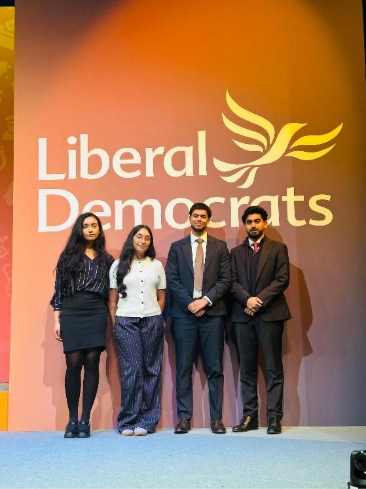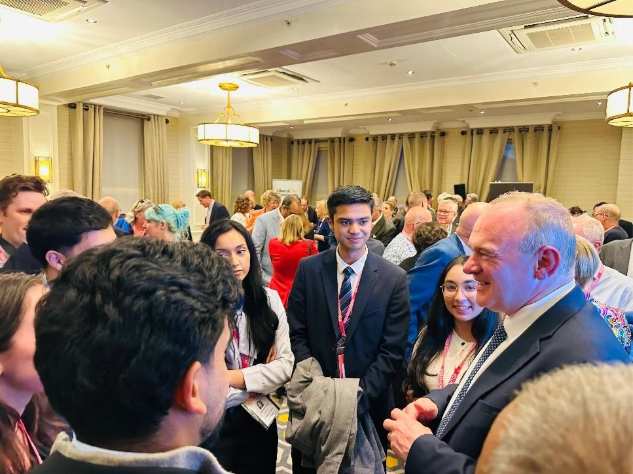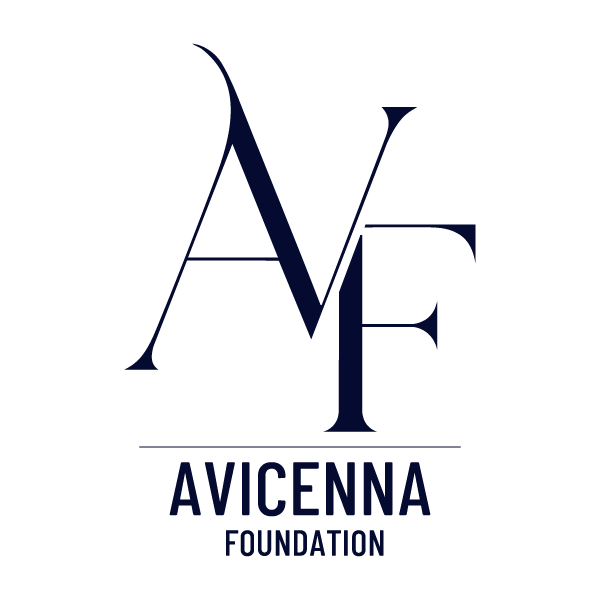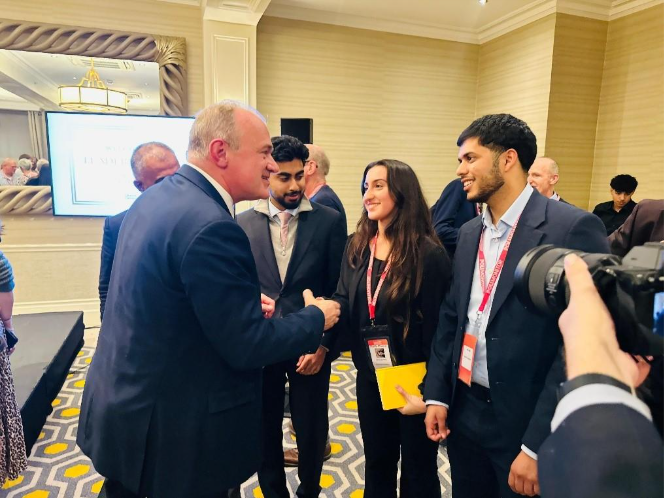Earlier this month, Avicenna Foundation Scholars attended the Liberal Democrat Party Conference, held from 20–23 September in Bournemouth. For many of our scholars, it was their first experience stepping into a political environment, observing debates, attending policy sessions, and engaging with those shaping national decision-making.
The Avicenna Foundation thanks the Liberal Democrat Party for facilitating our scholars’ attendance of the conference where they gained such meaningful experiences.
Here, two of our scholar attendees, Yahya Ali and Faheemah Khan, share their reflections on the experience
Yahya Ali
The Liberal Democrat Conference felt like a concentrated few days of ideas, conversations and quiet learning. I went into panels and fringes curious and left with clearer priorities and a lot more drive for the work ahead.
The Liberal Democrat Friends of Palestine event was one of the moments that stayed with me. The atmosphere was one of celebration and relief at the cessation of war, while facilitating conversations on how long-term peace and stability could be secured. I met Lesley there, an Irish Catholic who has worked in the Middle East for decades. He spoke about doing advocacy with dignity, patience, strategy and genuine care. That conversation reminded me of ihsan and trying to do things properly and with excellence. It renewed my resolve to let faith and moral clarity guide my work.
I moved from sessions on global justice, to talks hosted by the Adam Smith Institute and the Tony Blair Institute, to the main auditorium where party direction and leadership were discussed. There were moments of sharp policy insight and moments that were simply about people trying to find the right balance between principle and pragmatism. Listening to those conversations reinforced that good ideas need the hard work of persuasion and the patient work of coalition building.
The Leaders’ Drinks Reception was a very different kind of learning. Being in the room with current and former CEOs of the party, industry figures and others who quietly shape politics was a real privilege. It wasn’t about name-dropping; it was about listening to people who know how change happens and starting relationships that matter.
I’m especially grateful to the Avicenna Foundation team for making the trip possible. Their encouragement to be bold and authentic in conversation was practical and freeing: approach people, be yourself, and treat every chat as an opportunity to learn. The advice we received on relationships and networking was straightforward and so useful: reach out early, be prompt, follow up, and make connections that are meaningful and genuine. Those tips already feel like a small toolkit I can use straight away. Conversations with the Avicenna Team brought everything back to purpose and community; they reminded me that success depends on the people who support us.
One of the most rewarding parts of the experience was getting to spend time with the other Avicenna scholars, including those from earlier cohorts. Like the saying goes, you don’t really know someone until you travel with them, and I was grateful to share that journey. The older scholars were generous with their time and advice, offering so many gems of wisdom from their own paths. I learned so much from them, not just about careers or networking, but about staying grounded and true to your values.
I left the conference refreshed. It wasn’t just a string of speeches but a reminder of why this work matters: to stand for justice, to build lasting relationships, and to act with humility and purpose. I’m thankful for the chance to be there, for the people I met, and for Avicenna’s constant support in helping us learn, grow and serve.
Faheemah Khan
The Avicenna Foundation provided me with an opportunity to experience my very first political party conference. I witnessed first-hand how the Liberal Democrats attempted to empower community leadership and increase the confidence of their members to grapple with social issues. The overall push to craft an inclusive Britain was observable with the various sessions and events that were run, where Avicenna scholars like myself, were able to create packed itineraries that ranged from fringes, receptions and speeches.
I was able to explore the challenges and visions set out by the party and its affiliated organisations which either deepened my interests in certain industries and policies or broadened my understanding of them. For instance, I keenly attended a panel on the housing crisis led by MP Gideon Amos that exposed me to the Liberal Democrats aim to create more social homes that converged into a wider goal of crafting a sustainable economy. Growing up in an age where there is a prioritisation of capital and a disinterest in how to address climate degradation, it was great to see a political party attempting to be holistic and aware. This view was cemented as the event remained fast-paced and engaging, leading to a speech by Daisy Cooper. The deputy leader of the Liberal Democrats raised the issue of energy compellingly, emphasising energy as a right: that it should be sustainable and accessible to all households. Her proposal of taxing banks to help with the affordability of energy was an interesting take, one that I understood to be about practicality. As an Avicenna scholar that is driven to reflect on the polymath the organisation is named after, his philosophy was similar to the underpinnings of many of the speeches I had attended, that the pursuit for common good should be a balance between cooperation and reason. The need to distribute responsibilities and coin systematic solutions that can lead to social harmony echoed in the talks and chats I had with Liberal Democrat councillors and MPs, which made the conference overall a refreshing experience.
To end the conference, scholars had the chance to create relationships with NGOs, think tanks and Liberal democrat members at receptions we were kindly invited to. The donor’s reception by far was the pinnacle of the conference, where the friendly and engaging atmosphere enabled me to learn from individuals from various industries. It was a place that ensured my enthusiasm remained high, where I was able to not only learn but also explore my interests in ecology and interfaith dialogue. The ability to be vocal was much appreciated, for it showcased the Liberal Democrats willingness to create spaces for meaningful discussion that could be enjoyable at the same time. I grappled with topics such as micro finance and Christian medical ethics with individuals from the Green Liberal Democrats and the Christian Union.
The Avicenna Foundation encourages their scholars to be articulate and proactive in being involved in discussions that can shape the communities we are a part of. Thus, I was able to end this event with satisfaction and a wider understanding as to what my scholarship was about. Having this as my first opportunity with Avicenna, I learned that the scholarship is not just about elevating confidence but about pushing scholars to have a macro lens to better understand the role that they could one day play, which centres around ethical leadership and a dedication to crafting compassionately connected communities.



